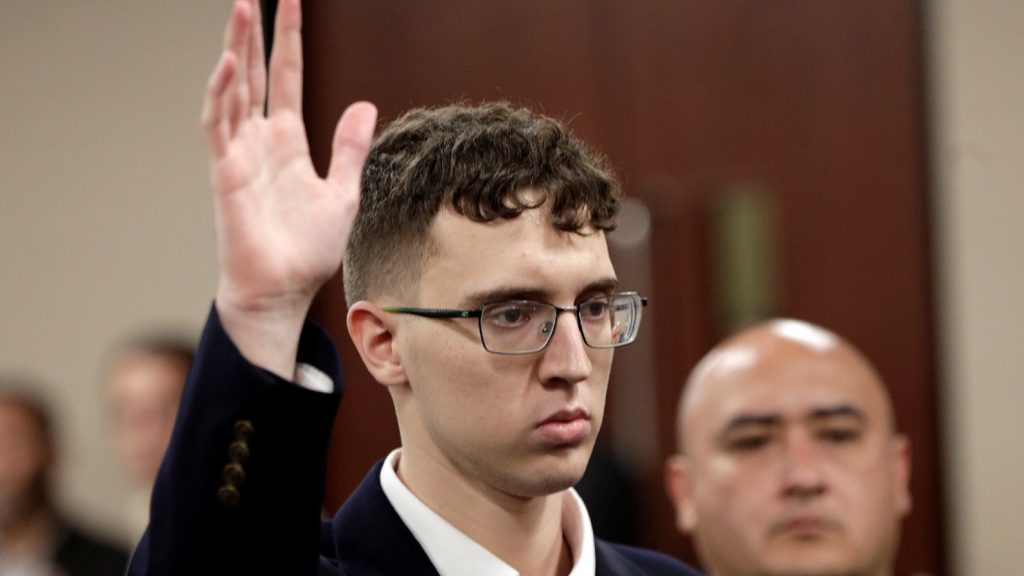A Texas man has received 90 consecutive life sentences for carrying out one of the deadliest attacks ever on Latinos in the U.S.
Patrick Wood Crusius, 24, showed no emotion as a federal judge handed down each life sentence -- one for each count -- July 7 in an El Paso courtroom, following two days of gut-wrenching testimony from survivors and relatives of victims from that massacre.
In February, Crusius pleaded guilty to an August 2019 shooting rampage he carried out with a Romanian AK-47 semiautomatic rifle at an El Paso Walmart, leaving 23 dead and 22 injured. Crusius had admitted to investigators that he intentionally targeted Latinos in the massacre.
Moments prior to the mass killing, Crusius -- who had driven more than 10 hours from his suburban Dallas home to El Paso -- had posted "An Inconvenient Truth," a manifesto in which he described himself as a white nationalist outraged by Latino immigration to the U.S.
Weeks after the mass shooting, El Paso Bishop Mark J. Seitz issued an October 2019 pastoral letter on racism, "Night Will Be No More," in which he also asked that Crusius be spared from execution.
"Justice is certainly required," wrote Bishop Seitz. "But the cycle of hate, blood and vengeance on the border must meet its end. While the scales of justice may seem to tilt in favor of the necessity of lethal retribution, God offers us yet another chance to choose life. Choose in a manner worthy of your humanity."
Since 2018, the Catechism of the Catholic Church has taught the death penalty is morally “inadmissible.” The catechism points out that whether an action is moral or not depends on three things -- the action chosen, the intention behind it and the circumstances around it -- all three parts have to be good in order to be morally permissible.
Pope Francis cited St. John Paul II in his 2020 encyclical “Fratelli Tutti,” where his predecessor explained that even when the death penalty is understood as an act of “legitimate defense” on the part of society, the circumstances have changed since modern society now has “the means of effectively suppressing crime by rendering criminals harmless without definitively denying them the chance to reform.”
Marking the first anniversary of the tragedy, Bishop Seitz urged both prayer and action to end racism, announcing the formation of a commission with El Paso-area religious and civic leaders.
"The greatest disservice we could do to those who lost their lives on that day, those who were wounded, was to forget what really happened," he said at the time.
OSV News reached out to the Diocese of El Paso for an updated comment on the shooter’s sentencing and was awaiting a response.
Crusius still faces a possible death penalty in a separate capital murder case brought by the state of Texas.

